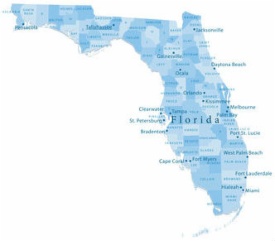 An expedited foreclosure, also known as a fast-track foreclosure, is an action pursued by the lender of the mortgage which allows the lender to foreclose on a home more quickly than the typical foreclosure process would allow. The lender files a motion to expedite the foreclosure with the courts. The motion for an expedited foreclosure is also served to the homeowner. This motion is only granted to the lender if the lender can show that the home has been abandoned and may be at risk of harm.
An expedited foreclosure, also known as a fast-track foreclosure, is an action pursued by the lender of the mortgage which allows the lender to foreclose on a home more quickly than the typical foreclosure process would allow. The lender files a motion to expedite the foreclosure with the courts. The motion for an expedited foreclosure is also served to the homeowner. This motion is only granted to the lender if the lender can show that the home has been abandoned and may be at risk of harm.
You can also receive a motion for expedited foreclosure when you are still living in the home. If this should happen to you, it is very important that you meet with a foreclosure defense attorney to review the documents. In most cases, you will want to hire a lawyer to make sure you follow all of the instructions and respond and object to the motion. This means you may have to submit evidence and attend a court hearing in order for the judge to decide whether or not you have abandoned the home.
Expedited Foreclosures in Florida
Under Florida law, any lien holder—like a second lien holder or a homeowners’ association—can use the expedited foreclosure process. The lender files a motion to expedite the foreclosure with the courts. The motion for an expedited foreclosure is also served to the homeowner.
If the court finds that the motion is proper, the court will issue an order to the homeowner directing you to show cause (prove) that the home should not be taken from you. If you fail to answer, you forfeit the hearing and the foreclosure can be expedited.
Illinois Foreclosure on an Abandoned Property
The Illinois expedited foreclosure statute permits a lender to file a motion requesting an expedited judgment of foreclosure at the same time or after the filing of the initial foreclosure complaint. The motion must be accompanied by facts demonstrating that the residential property is abandoned. The hearing must be heard within 21 days of filing. If, at the hearing, the court finds that the property is abandoned, it would then grant the motion and immediately proceed to a trial of foreclosure. However, the court may not grant the motion if anyone appears before or at the hearing and objects to the finding of abandonment.
New Jersey Expedited Foreclosure
In New Jersey, a motion for expedited foreclosure can be filed as a new foreclosure case or can be filed in addition to an existing foreclosure case. The lender must prove the property was abandoned by bringing clear and convincing evidence of at least 2 out of 15 conditions on the statute’s list of abandonment criteria. The fast track law does not alter New Jersey’s very brief redemption period, which gives a borrower 10 days from the date of the foreclosure sale to redeem.
New York Vacant and Abandoned Properties
New York’s expedited foreclosure statute enables a lender in a foreclosure action to seek a court’s determination that the property is vacant and abandoned. They can then obtain an expedited judgment of foreclosure. The law includes a list of evidence that could support a determination of vacancy and abandonment, specifying eight separate features. The statute does not require the court to make specific findings as to a minimum number of items of evidence to be proven. If any homeowner enters an appearance, files an answer or written objection, or otherwise indicates an intention to deny the abandonment of the home, no judgment of foreclosure may be entered based simply on evidence of vacancy.
Pennsylvania Requires Photographic Evidence
 According to the Pennsylvania expedited foreclosure statute, the lender files an affidavit by a competent adult who has personal knowledge of the property’s condition (including a property inspector or agent that the lender retained) saying the property is vacant and abandoned. The lender must also include photographic evidence showing abandonment. The filed affidavit and the evidence is then served on the borrower.
According to the Pennsylvania expedited foreclosure statute, the lender files an affidavit by a competent adult who has personal knowledge of the property’s condition (including a property inspector or agent that the lender retained) saying the property is vacant and abandoned. The lender must also include photographic evidence showing abandonment. The filed affidavit and the evidence is then served on the borrower.
If you still live in the property, you’ll need to file a response within 20 days certifying under oath that the property isn’t vacant or abandoned. The court will then set a hearing and make a final determination. If you don’t respond, the court can certify the property as vacant, and the lender may proceed with a fast-track foreclosure. 
In Pennsylvania, a lender can also get a fast-track foreclosure by asking a municipal code enforcement officer to certify the property as vacant. The officer inspects the property and provides a report certifying its status as vacant and abandoned. The homeowner will get a notice about the results of the inspection and that you must seek a hearing to challenge the vacancy determination, or the determination will be final.












